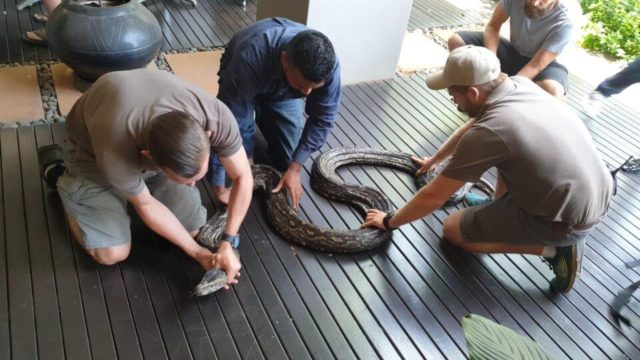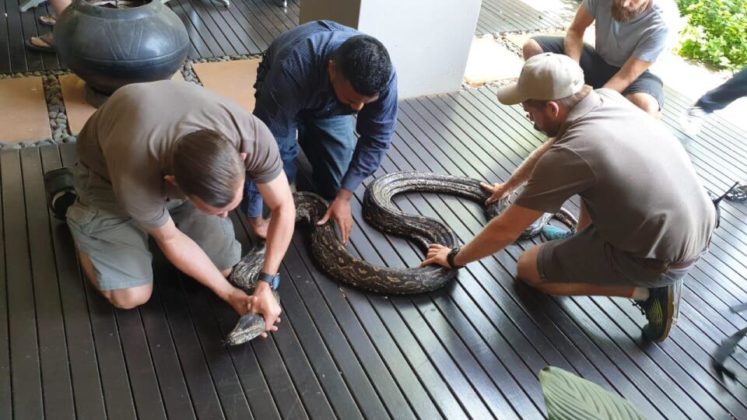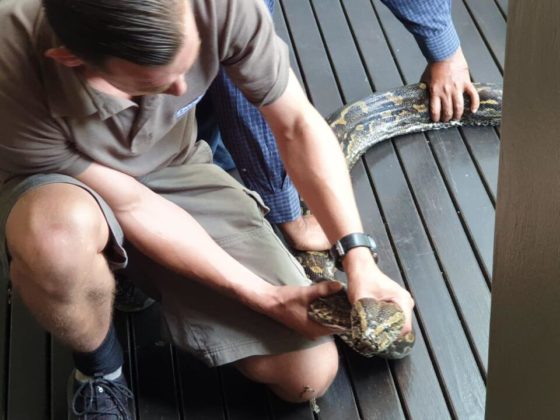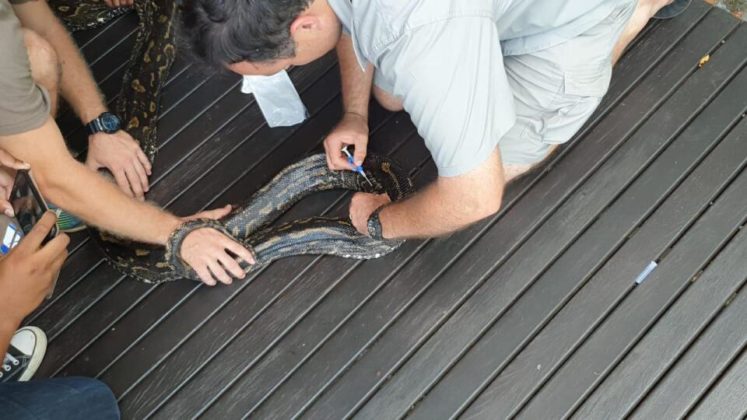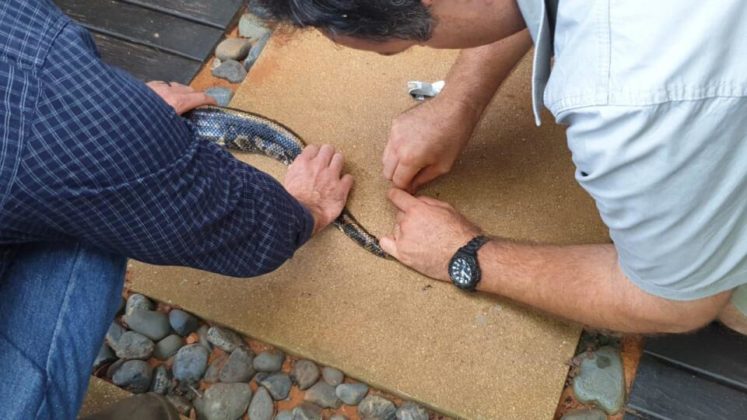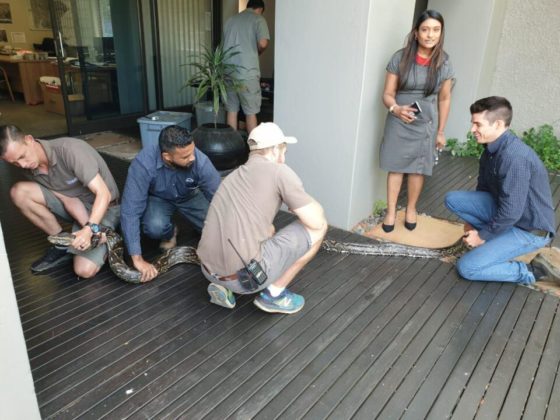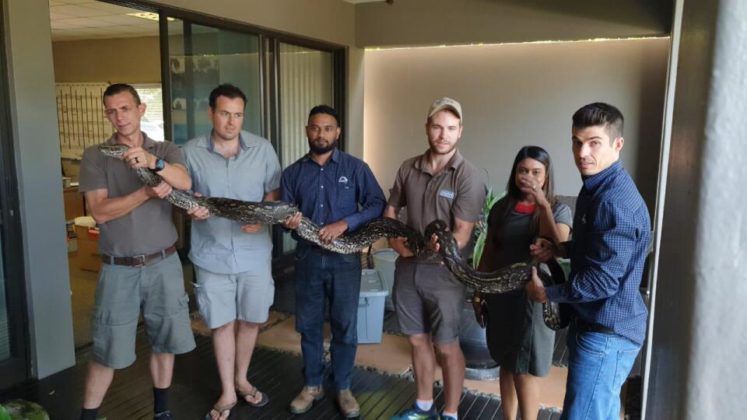A microchip was placed by the tail of the snake as part of a research study.
Durban – The four-metre-long pregnant female African Rock python which wasrelocated from the Zimbali Eco Estate last year was returned to her home on Monday after she laid just under 60 eggs.
Snake catcher, Nick Evans, said the python laid 58 eggs, which would be kept safely in incubators until they hatch.
Upon her return, the python was microchipped by Evans as part of a research study in partnership with the Zimbali Estate Management Association (Zema).
Evans said to his knowledge, the study was the first of its kind in KwaZulu-Natal where snakes would be tagged with microchips usually used in dogs and cats.
While the microchip does not work like a tracking device, he said each snake would be able to be identified by a unique identity number.
Evans said last year they found a big python in March and another in December. He said data from the study would assist them to determine whether or not they keep catching the same snake.
Four men secured the python while Evans inserted the microchip close to the tail. He then used a scanner to confirm its placement.
Evans said the microchip was placed by the tail to ensure it did not get dislodged while the python ate its large prey.
A DNA sample was also taken off the tip of the python’s tail.
“It tells you a whole lot, even the age I believe. We’ll also take DNA off the babies and we actually see it they are related,” said Evans.
He said he recently learnt that out of one clutch of eggs, there could be multiple fathers.
Brendan Smith, Zema’s environmental manager, said it was not usual for snakes to be removed from the estate unless they were pregnant.
“They take it away for safekeeping and allow it to hatch its eggs in a safe secure environment.The snake is then immediately brought back which is happening today[yesterday],” said Smith.
Smith said the python was captured in December in the region of Yellowwood Drive and they hoped to release her near a body of water with wetlands system close to where she was found.
“Once the eggs have hatched they will be brought back here,” he said.
Smith said the research project would dispel any myths people had about snakes.
“No one really knows what they up to and how many we have…We don’t actually have enough information to do anything and this will definitely help us make management decisions going forward,” said Smith.
Smith said the study, which would also include green mambas, would provide information on movement and population dynamics.
When there is a snake encounter, he said Evans has trained security on how to catch them.
“Any python or green mamba which is caught by security is held until Nick can come and microchip them,” said Smith.
While the African Rock python was not endangered, Evans said their numbers have been in decline.
“Humans are eating them, using them for traditional medicine and people kill them out of fear because they think they are anacondas,” he said.
Evans said the python was a protected species and it would be illegal to kill and sell them.
“It’s important to conserve what’s left. There are many parts in Durban where they are extinct,” said Evans.
The Mercury

